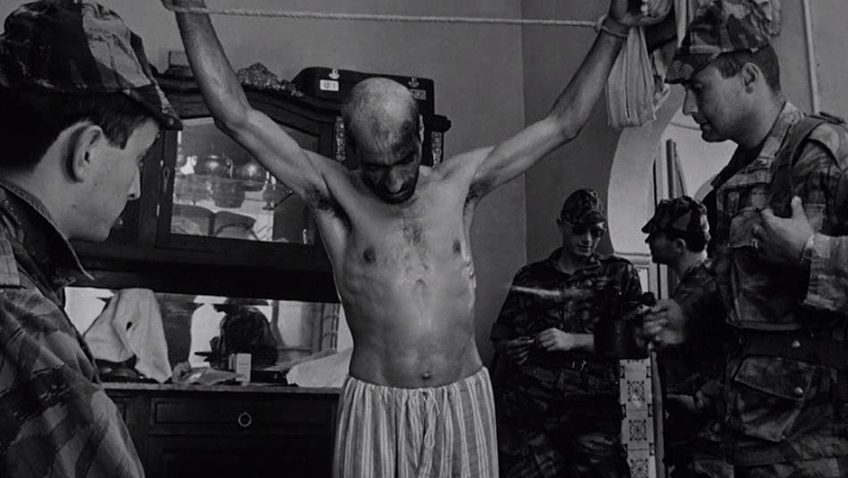Robert Tanitch reviews the latest DVDS
The Battle of Algiers (Cult Films) is Gillo Pontecorvo’s brilliant reconstruction of events between 1954 and 1957. Filmed in 1966 in the actual locations with a handheld camera it feels as if you are watching a newsreel and it’s all happening now. It has that immediacy, an authentic documentary feel. The cast are the inhabitants of the casbah, non-professional actors. The crowds are superbly choreographed. The film is powerful propaganda and has a terrific impact; it is full of suspense and excitement. It has been described as a primer for terrorists. The film is anti-colonialism (it was banned in France) and on the side of FLN (Algerian Liberation Front). But Pontecorvo is non-judgmental, even-handed, and shows it as it was. There is brutal violence on both sides. The French torture. The Arabs bomb cafes. The film has won many awards and figures in many people’s list of Best Films.
Tom of Finland (Peccadillo) Touko Laaksonen (1920-1991), artist, pornographer and liberator, a major iconic influence in gay culture, will always be identified with the gay leather jacket/motorbike scene. He had to move out of homophobic police-beating Helsinki and find celebrity in Germany and California. His hyper-muscular erotica was initially available only by mail-order and in sex shops. Nowadays his porn can be found in coffee-table books and in museums and in Finland even on stamps. If you are already familiar with his art work you may be interested in Dome Karukoski’s film; but, sadly, it never really engages and, the big surprise, is that it is not erotic.
Strangled (Eureka) is a Hungarian film set in a small town in the 1950s and 1960s. Why are women walking home in the dark alone when a necrophiliac serial killer is known to be on the loose? Why would a man confess to be a murderer if he hadn’t done it? Árpád Sopsits’s brutal and ugly psychological thriller is based on a true story and, concentrating on the murder and rape, fails to get to grips with the real political subject matter: the communist justice system and the corruption in the police force.
To learn more about Robert Tanitch and his reviews, click here to go to his website







